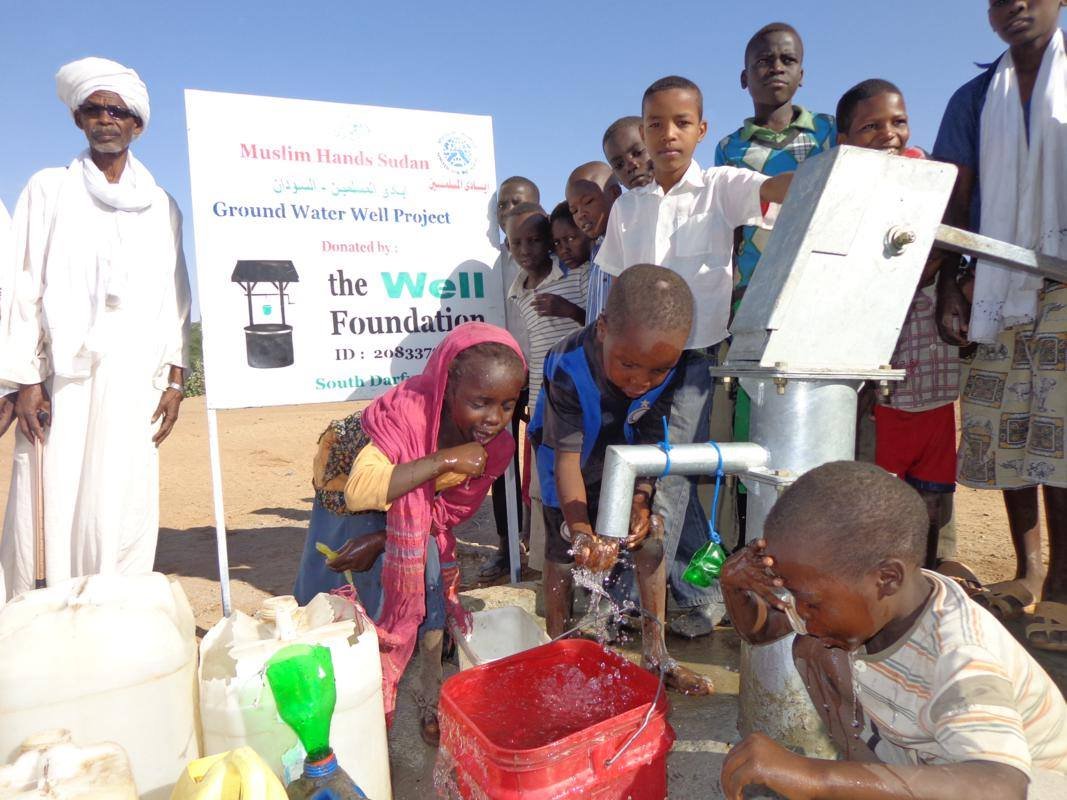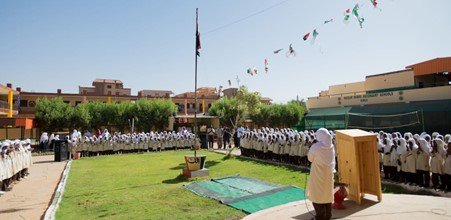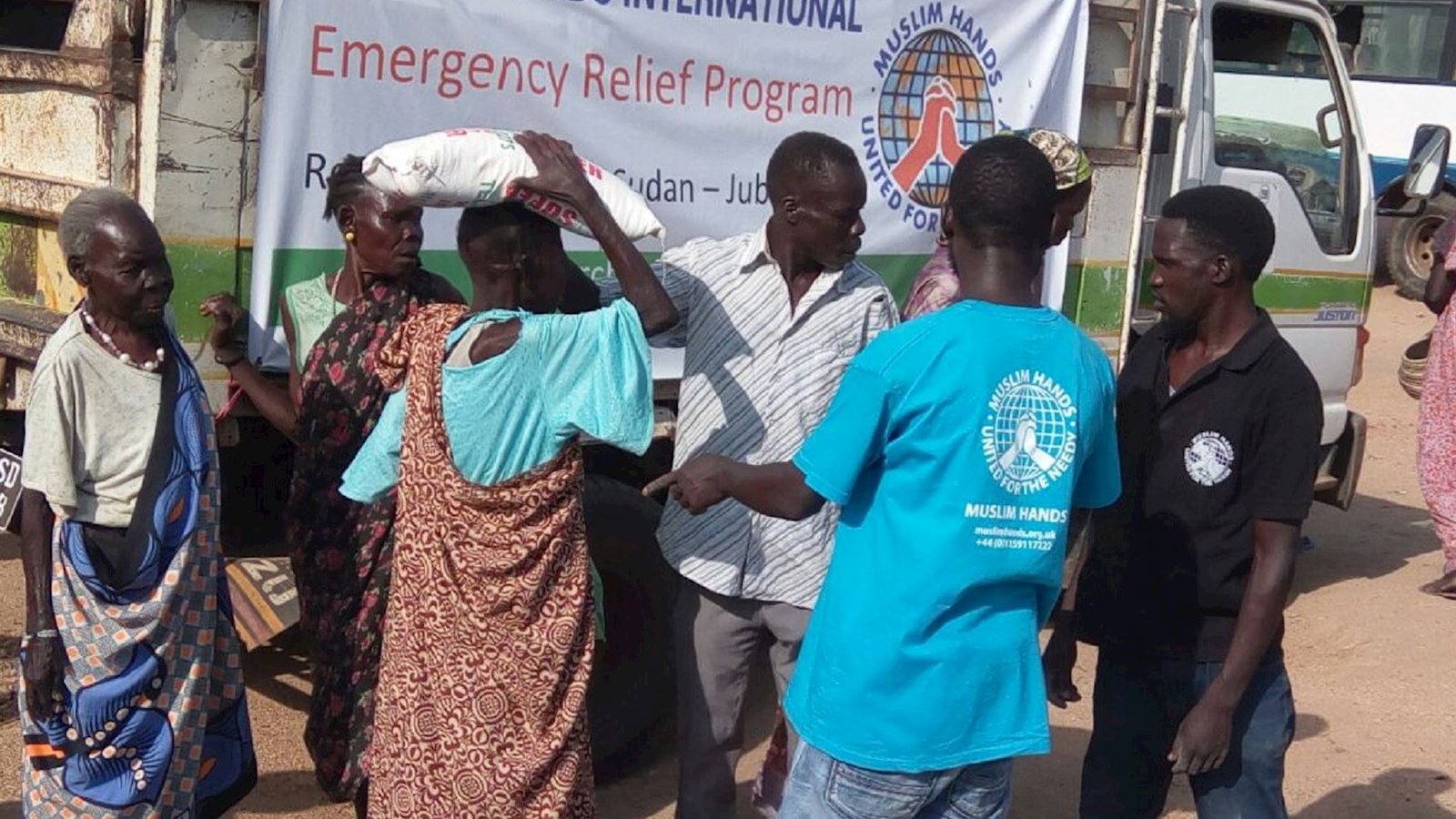WHAT WE DO IN SUDAN
![]() WASH
WASH
![]() Education
Education
![]() Health
Health
![]() Emergency Humanitarian Response
Emergency Humanitarian Response
![]() Livelihoods and Food Security
Livelihoods and Food Security
Sudan
Country Situation: Since 2003, Sudan has been affected by civil conflicts that have led to millions being affected by internal displacement and insecurity in its many states. The conflict has also resulted in devastating deterioration in the livelihoods, security, education of its population. Sudan’s population was already vulnerable due to being one of the poorest countries in the world and among the lowest ranked in terms of Human Development Index (HDI), even prior to the conflict, and so had limited resources to deal with the challenges presented by it. Unfortunately, in the past 20 years, the burden on Sudan has only increased, as besides conflict, Sudan has also struggled with droughts, desertification affecting livelihoods, corruption, weak infrastructure, tribalism, weak rule of law, ease of arms ownership, illiteracy and other challenges.
Our Presence: Muslim Hands has been working in Sudan for 18 years (MH Sudan was established in 2004). Its work has focused on Education (esp. for unsupported children), WASH, Health, Livelihoods and Emergency Humanitarian interventions, as these are the sectors where MH found the greatest unmet needs. MH Sudan has conducted humanitarian and development interventions in 11 of Sudan’s 18 states. Its Head Office is located in Omdurman, Khartoum State whereas it maintains regional offices in Niyala, South Darfur and Um Rowaba, North Kardofan. MH Sudan currently has a permanent staff of 24, and has a roster of multiple experts that advise the implementation of various programs on contract-basis. MH Sudan also has an excellent Volunteers Network with over 600 members, out of which 97 are currently engaged in its various projects as of 2022.
WASH
In Sudan, where the majority of the population relies on agriculture and rearing livestock for survival, water is a vital lifeline. MH Sudan is one of the leading organizations working in WASH sector in Sudan, having dug and installed over 964 water wells since 2004, which altogether have served more than 377,120 families across 2 decades.

MH Sudan ensures sustainability for these wells by giving communities ownership of the project, by involving them in the design phase, training them on the Operation & Maintenance (O&M) and setting up community organizations to secure the funds and assign the responsibility for O&M of WASH projects.
MH Sudan’s WASH department includes many experienced employees and experts in this field, with decades of experience and specializations ranging from water engineers to public health officers.
Education
Muslim Hands Sudan has decades of experience in the design, implementation and running of education projects as well as 4 expert staff members who we consult on the logistics of setting up schools, designing their curriculum and enrolling students. MH Sudan has so far built and run
- 4 Schools of Excellence since 2004 which annually serve more than 1300 students,
- 21 village schools which serve 2500 annually
- and 4 schools for children in IDP camps which serve more than 4000 annually.
The long-term impacts of MH Sudan’s education interventions is attested by the long-term outcomes of the first batch of students of MHSOE (batch of 2005) who are now graduating from universities, colleges and high institutes in fields of medicine, engineering, arts, education, business, etc. In a country where lack of qualified workers is a big problem, MH students are improving their families’ lives by earning from good jobs and also providing valuable educated human resources for Sudan’s public and private sectors.

Graduates of MH School of Excellence who are now studying medicine in order to become doctors. Doctors are badly needed in Sudan.
Therefore, MH Sudan’s education intervention directly contributes to Sudan’s government’s development priorities as well as SDG 4: Quality Education which is about promoting lifelong opportunities on an inclusive basis.
Muslim Hands schools of Excellence: Since the school was set up in 2004, with an initial student body of just sixty five, demand in the area has steadily increased as it has now become one of the top schools in Sudan. As of 2022, the school now consists of primary and secondary schools for both boys and girls and serves a total of 1350 pupils, most of whom are orphans. A third floor is needed to be added to the boys school due to increased demand. The buildings are spacious and clean, the classrooms light and airy and inspirational messages adorn the walls. The school provides safe transport to children. As well as giving them access to an education, MHSOE provides education to children that have experienced great loss and hardship, especially orphans, with a safe and engaging environment for learning, playing and developing their confidence.

Photo of assembly of student body in courtyard of MH School of Excellence in Omdarman (2015)
South Darfur Education in Emergency Program (For IDPs): Under this project, MH Sudan has built and continuously run schools for internally displaced children in IDP camps (mainly Dirage IDP camp in Niyala, South Darfur). These children have had their education discontinued for many years due to their families’ displacement and they have few prospects to recontinue their education due to lack of opportunities in IDP camps. Identifying the lack of schools in IDP camps as the central problem that needed addressing, MH Sudan partnered with MH Ministry of Education and WFP to fund the schools.
Schools for Rural and Nomad Communities: The unmet educational needs of children of rural villages and among nomad tribes is mainly due to lack of schools in their areas. As such, based on a need assessment, MH Sudan brought their expertise of building and running schools to various locations in North, South & West Kardofan as well as the White Nile. Since 2007, MH Sudan has built 15 schools which serve an average of 2500 students yearly.
Orphans scholarship and sponserships: Orphan beneficiaries of MH Sudan schools and give them opportunities to continue their studies after graduating from school by giving them financial support to enter universities or other professional training. This has been concurrent with the establishment of MH Sudan schools and 156 students (all of whom are orphans) are selected on need- and merit- basis to continue their education.
Health
In developed countries, cataracts (which impair vision) can be corrected in surgeries of as little as 45 minutes. In developing countries like Sudan (as well as other countries where MH works, like Mali and Pakistan), cataract surgery can be very expensive and is often only available in specialist clinics. This means that millions of sufferers living in impoverished communities continue to live in the dark. Not being able to see properly can be incredibly isolating and sufferers are usually not able to work and earn a living for themselves and their families, plunging them deeper into poverty.
MH Sudan has therefore established Eye Care Camps in Khartoum and South Darfur since 2008 for rural and displaced communities which provide various general and specialized services. One specialized service that MH eyecare camps provide is making Cataract Eye Operations available, free of charge, and has performed 765 eye surgeries under the care of qualified professionals.
Emergency Humanitarian Response
Since the opening of its Sudan office, Muslim Hands has participated in a number of humanitarian emergency responses whenever the need arose.
Flood Response: Within the past 3 years, MH Sudan has provided distribution of relief goods (Food-items and Non-Food Items) to 4000 disaster-affected families on need-basis in Khartoum and Al-jazeera states after the 2020 floods. Moreover, MH Sudan intervened in protecting existing food crops by providing insecticides.
Ethiopian Refugees and Internal Displacement Crises: MH Sudan has intervened to address the needs of Sudan’s internally displaced, but has also responded to the humanitarian needs of conflict-displaced refugees fleeing violence in Ethiopia in 2020. Under this program, two thousand families were selected on need-basis for distribution of Food Items and Non-Food Items (NFIs) in Um-Rakoba Refugee camp.


Covid-19 Response: MH Sudan has also helped in the country’s response to Covid-19 by providing medical staff with 25,000 various medical-grade items of PPG (Personal Protective Gear) in very rural areas in Khartoum province that were suspected to be suffering from a spreading infection of Covid-19. MH Sudan intervened because the medical staff did not have access to Personal Protective Gear in sufficient supply.
Livelihoods and Food Security
Since 2005, MH Sudan has provided 350 vulnerable families in various rural states of Sudan with direct livelihood support.
